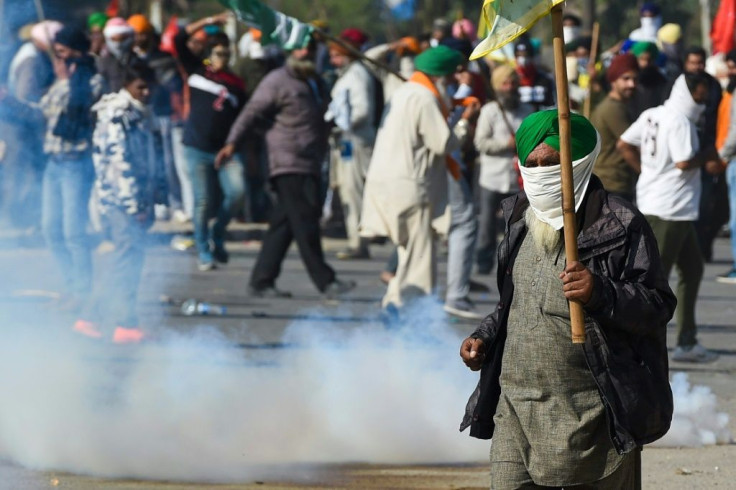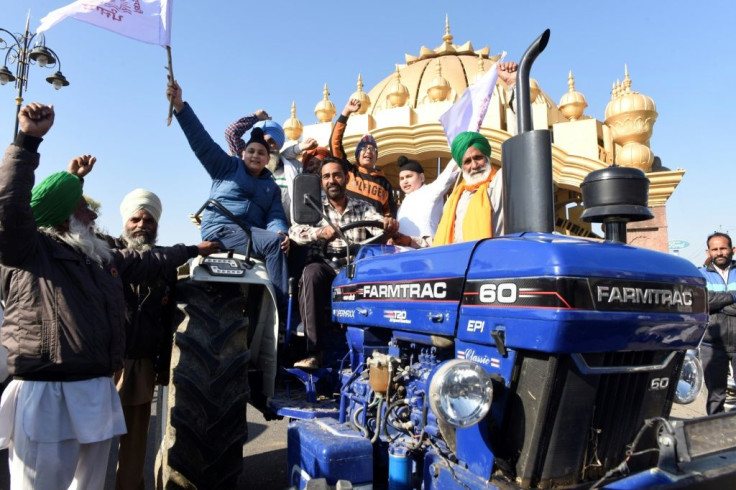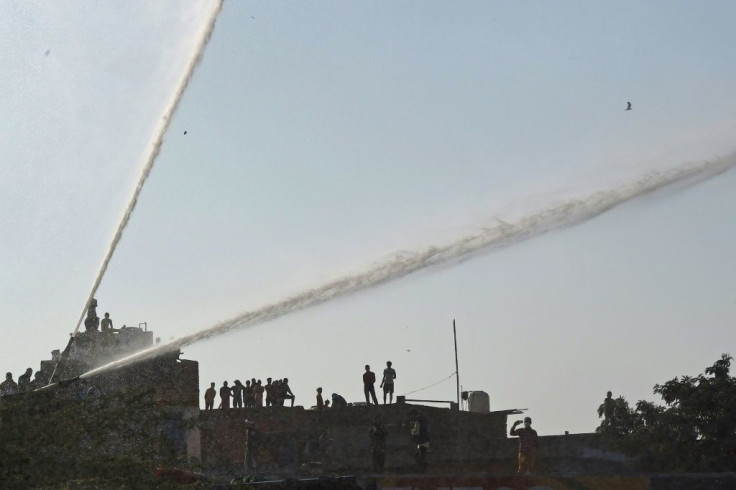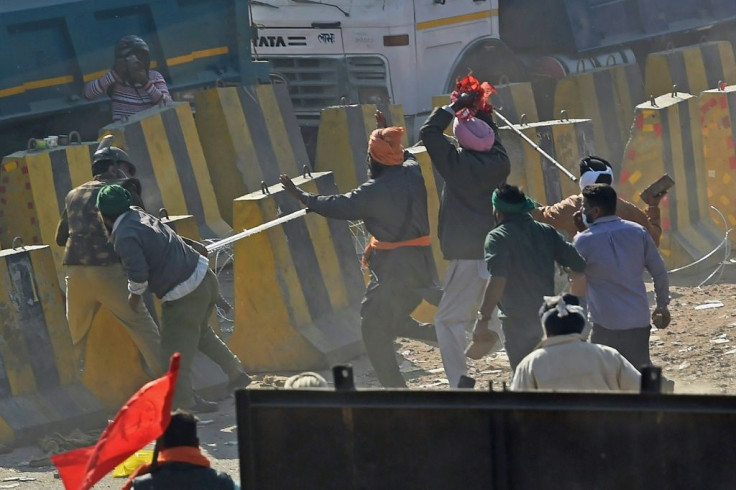Indian Police Clash With Farmers For Second Day
Indian police fired tear gas and water cannon on Friday in a second day of clashes with farmers marching on New Delhi angry at agricultural reforms they fear will leave them at the mercy of big corporations.

Authorities eventually allowed the farmers, some of whom threw stones and broke barricades, to enter the capital under police escort to stage a demonstration this weekend.
Police had deployed hundreds of officers at different entry points to the capital, parking trucks full of sand and laying barbed wire to block the farmers' path.

The plight of Indian farmers has long been a political hot potato.

Issues such as erratic weather patterns blamed on climate change and mounting debt have been blamed for the suicides of thousands of farmers in recent years.
Laws passed earlier this year mean farmers are now free to sell their produce to anyone at any price, instead of to state-controlled markets at assured rates.

Prime Minister Narendra Modi hailed this as a "complete transformation of the agriculture sector" that would empower "tens of millions of farmers" and encourage much-needed investment and modernisation.
But the main opposition Congress party, which is in power in the northern state of Punjab where many of the protesters came from, has argued the change will give private corporations free rein to exploit farmers.
"I welcome the (central government's) decision to allow farmers to enter Delhi to exercise their democratic right to protest," Punjab's Chief Minister Amarinder Singh said on Friday.
"They should also now initiate immediate talks to address farmers' concerns on the #FarmLaws and resolve the simmering issue," he tweeted.
The protesting farmers had also blocked the movement of trains in Punjab for the last two months, before yielding to public and government pressure and lifting the blockade.
Thursday's stand-off resulted in a long traffic hold-up on one of India's busiest national highways, linking New Delhi to several northern states.
© Copyright AFP 2024. All rights reserved.











